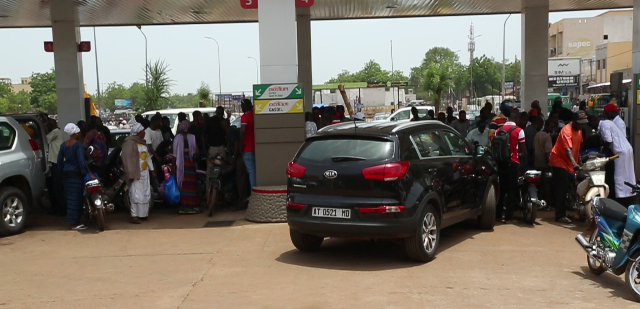In Mali, the strike of heavy-load drivers which had provoked a shortage of fuels has come to an end, says the National Syndicate of Road Drivers (SYNACOR). Reached by Sahelien.com, the administrative secretary, Sekouba Diallo, explained that an agreement was reached with the government on the claiming points. The strike order was respected at all borders since Monday, May 22, according to Sekouba Diallo.
Striking drivers requested a review of the collective agreement for road drivers, a work contract, social security, the application of decree No. 001358 / MICT-SG of May 9, 2000 laying down the conditions for the establishment and licensing of driving licenses as well as the conditions for extending, prorogating and restricting the validity of driving licenses.
A driver in Mali is paid between 25,000 CFA francs and 50,000 CFA francs, compared to 300,000 CFA francs and more in Senegal and Burkina Faso, says Amadou C., a driver for almost ten years. « The strike was going to take the necessary time. The authorities do not want to do anything to put us in good conditions because they have shares in these companies », he told Sahelien.com. He also mentioned the harassment on the roads by police, customs, gendarmerie, problems related to the evaporation of petroleum products called the « wastage ».
At the National Petroleum Products Office (ONAP), they assure that the problem concerning the evaporation of petroleum products is resolved: « They have been given the texts. These are transportation losses and that’s normal. It is not because the driver has stolen, if there is no evaporation the tank will explode. We have recognized the level, the wastage falls to the importer », says Soumana Mory Coulibaly, Director of ONAP.
The real problems of drivers are elsewhere, says this agent of ONAP. « The problem, he explains, is that drivers are not insured. They work for 40 years and can be fired one day because of the boss’s mood. On the death of a driver, 100 000 francs are paid for millet and rice, and after the boss no longer returns to his family ».
The drivers’ union points an accusing finger at the government, which « made it a belief that it was going to solve the problems but did nothing ». This outcome occurs while in Bamako and in the surrounding towns the vehicle owners of are panicking around gas stations to stock up.
Boubacar Sangaré

